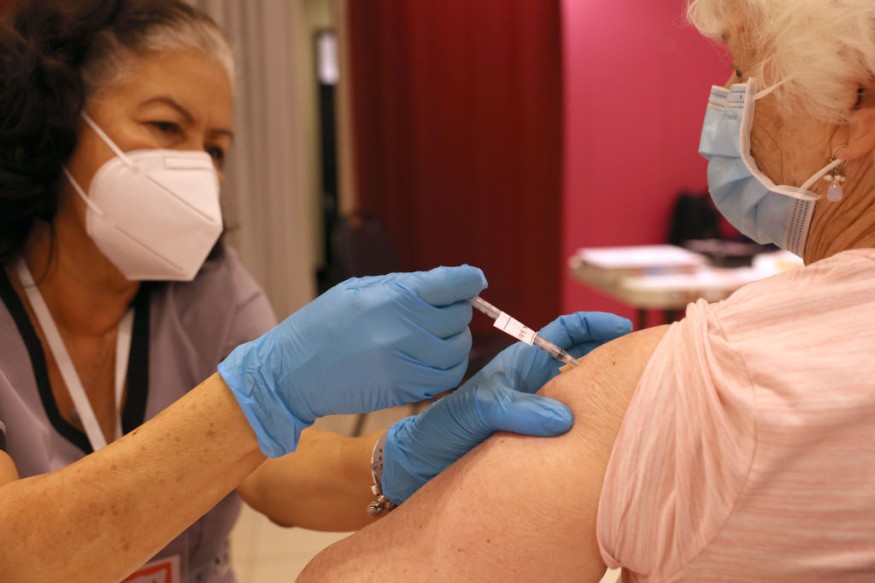
The majority of individuals appreciated the option to somehow get immunized against COVID-19, while a sizable minority opposed. Vaccine-resistant individuals have strong opinions and consistently dismiss patient safety advice. Many people are perplexed by this, and the matter has proven to be combustible in various nations.
It has caused fewer connections, including within households, and has challenged societal cohesiveness on a larger scale, such as during the month-long demonstration on government premises in Wellington, New Zealand.
Where do these intense and emotional anti-vaccination feelings come from?
Medical History Study on Vaccine-Resistant Cohort
Numerous grownup perspectives, characteristics, and actions come from their origins in youth, according to biosocial experts' interview with The Conversation.
This realization compelled experts to inquire about vaccine impedance between participants in the long-running Dunedin Investigation, which is celebrating its 50th anniversary this month.
Researchers explicitly asked research participants about their vaccination plans throughout April and July 2021, sometime before to New Zealand's nationwide vaccine spread up, which debuted in August 2021. The observations provide credence to the notion that anti-vaccination sentiments emerge from early encounters.
Posted under the Dunedin Multidisciplinary Health & Development Research Unit, the Dunedin Study accompanied a 1972-73 birth dataset, gathered a great deal of data on several different facets of its 1037 attendees' existences, along with their corporeal wellbeing and private interactions, as well as long-standing principles, intentions, habits, information-processing potentials, and sentimental propensities dating ahead to early life.
To make conditions worse, several vaccine-resistant research participants had intellectual impairments from childhood, in addition to early-life adversity and psychological vulnerabilities.
According to ScienceAlert, while investigators examined the formative years records of vaccine-resistant people to others who are not, they discovered that many vaccine-resistant individuals experienced records of awful early life events; such as trauma, cruelty, exclusion or abandon, or experiencing an alcoholic father.
Proactive pathogen and vaccine teaching might give individuals with a pre-existing understanding foundation, minimize individuals' element of error in the case of a potential outbreak, avoid psychological trauma responses, as well as increase receptivity to public health interventions.
Presently, New Zealand has an extremely high vaccination frequency which is about 95%. This is roughly 10% significantly greater than in England, Wales, Scotland, or Ireland, and 20% greater than in the United States.
They were also pessimistic towards wellbeing, saying at the range of 15 on a rating termed medical locus of control that there are none adults can do to enhance their wellbeing. However, once cognitive challenges are combined with the severe unpleasant feelings that are particularly frequent in vaccine-resistant persons, vaccination judgments might appear illogical to medical practitioners.
This is consistent with the results, where it emphasizes the value of acknowledging specific life backgrounds as well as frames of reference about the world, which are both caused by hardships encountered by certain folks at young age.
Early Childhood Experience Contribute to Vaccine Perception
Researchers propose that nationwide preparedness for prospective epidemics involve precautionary teaching to instruct students regarding virology, contagion systems, infection-mitigation habits, as well as immunizations.
Character evaluations at the age of 18 revealed that persons in the vaccine-resistant cohort were prone to recurrent strong reactions such as anxiety and rage. Additional ideas highlight monetary remedies such as a worldwide catastrophe reserve, improved robust distribution networks, as well as worldwide vaccine delivery management.
The study contributes to the understanding that individuals' vaccination susceptibility is a lifetime behavioral manner of mischaracterizing facts throughout stressful circumstances that begins during middle school. This has the additional advantage of developing a genuinely empathetic attitude concerning vaccination tolerance, which may lead to better frequencies of vaccine readiness in the long run.
Even under the best of circumstances, having long-standing psychomotor retardation would create a challenge for anybody to absorb complex sensitive data.
Related article : Analysis of Genetic Material in the Ocean Identifies 5000 Previously Unknown Viruses
© 2026 NatureWorldNews.com All rights reserved. Do not reproduce without permission.





